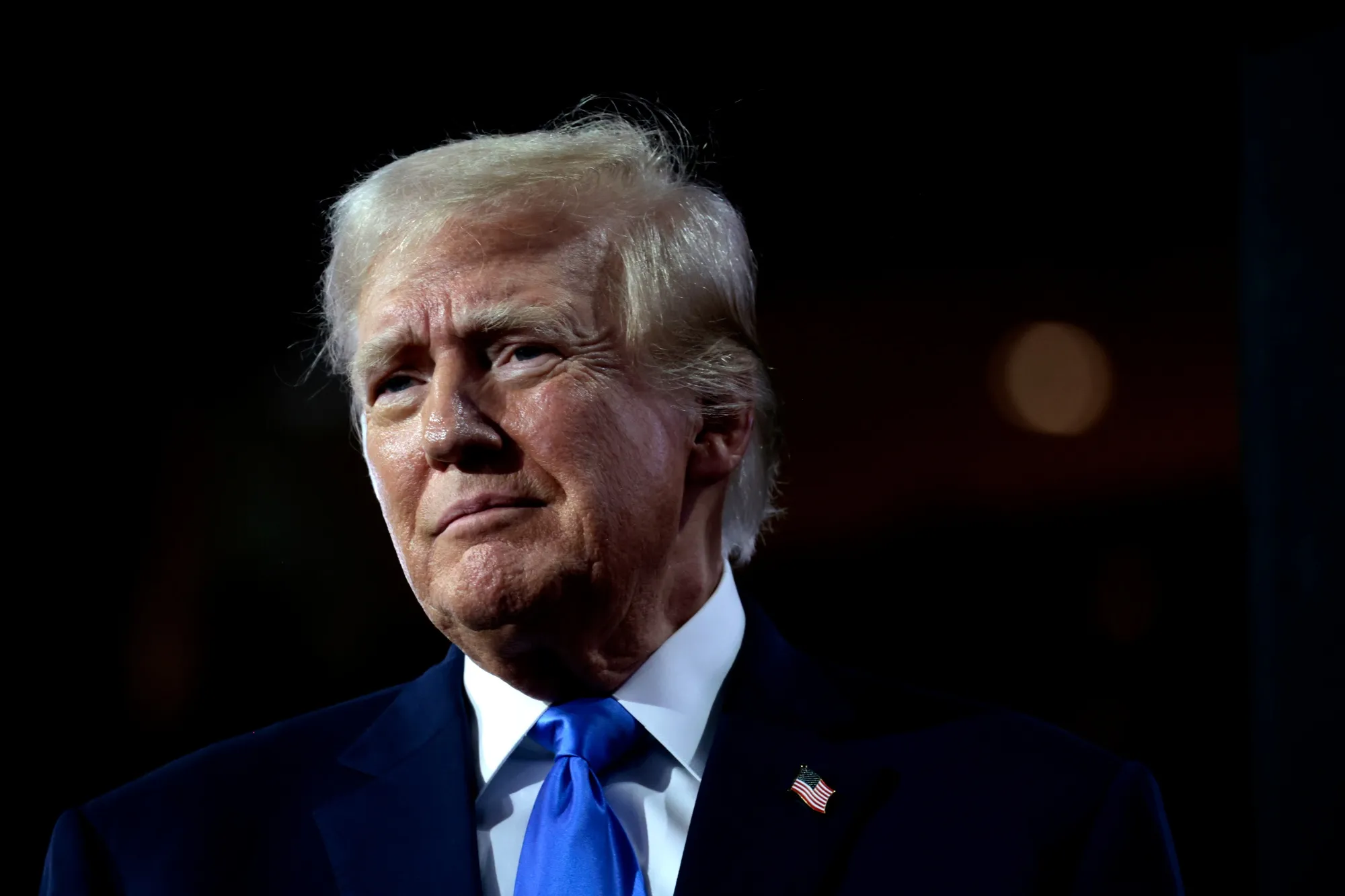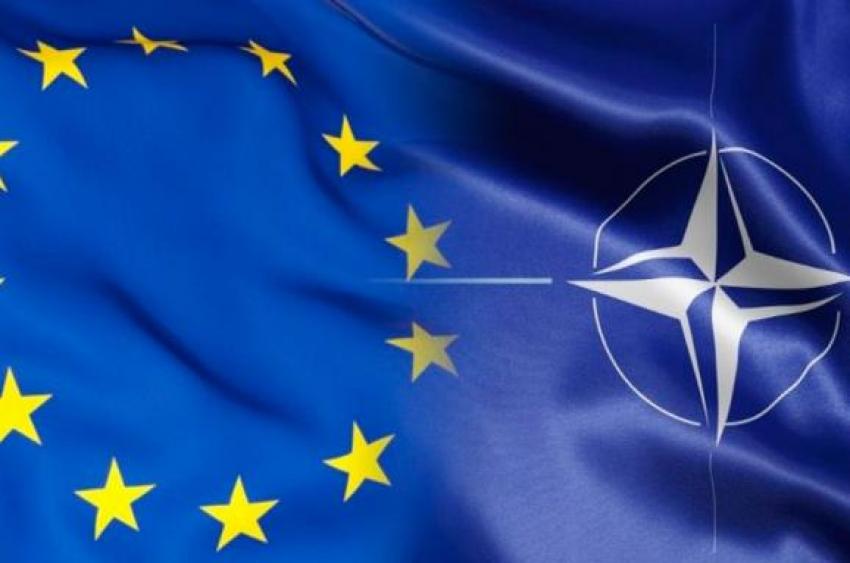The Trump Presidency And Its Impact On Mark Zuckerberg And Meta

Table of Contents
Mark Zuckerberg, the CEO of Meta, and his company, the dominant force in social media, found themselves at the center of a maelstrom during the Trump administration. Meta’s influence on global communication and information dissemination meant that its actions—or inactions—became focal points in heated political debates.
Political Advertising and the 2016 Election
The 2016 US Presidential election served as a watershed moment, exposing the vulnerabilities of Meta's platform and its role in the spread of political messaging.
The Cambridge Analytica Scandal and its Fallout
The Cambridge Analytica scandal remains a stain on Meta’s history. This data privacy breach involved the harvesting of personal data from millions of Facebook users without their consent. This data was then allegedly used to microtarget voters during the 2016 election campaign, raising serious concerns about the influence of political advertising and foreign interference.
- Data Breach: Cambridge Analytica gained access to the personal data of up to 87 million Facebook users.
- Connection to Trump Campaign: Allegations surfaced that the firm used this data to profile voters and tailor campaign messaging for the Trump campaign.
- Regulatory Scrutiny: Meta faced intense scrutiny from regulators worldwide, leading to substantial fines and increased calls for stricter data privacy regulations.
- Reputational Damage: The scandal severely damaged Meta's reputation, fueling public distrust in the platform's ability to protect user data. The fallout included congressional hearings, investigations, and a significant drop in user trust.
The Role of Targeted Advertising in Political Campaigns
Meta’s powerful targeted advertising platform became a central point of contention. Its ability to precisely microtarget voters based on their demographics, interests, and online behavior raised concerns about its potential to manipulate elections.
- Ethical Considerations: The use of highly personalized advertising in political campaigns sparked intense debate over its ethical implications and potential for manipulation.
- Transparency Concerns: Critics argued that the lack of transparency surrounding the targeting of political ads allowed for the spread of disinformation and the manipulation of public opinion.
- Meta's Response: Meta responded to criticism by implementing some measures to increase transparency in political advertising, but the issue remains a subject of ongoing debate. The effectiveness of these measures has been frequently questioned.
Content Moderation and the Spread of Misinformation
The Trump presidency was characterized by a surge in the spread of misinformation and conspiracy theories, largely facilitated through social media. Meta found itself battling the challenge of moderating content while navigating accusations of censorship and bias.
The Challenge of Combating Fake News and Conspiracy Theories
Meta's algorithms, designed to prioritize engagement, inadvertently amplified the reach of false or misleading information linked to the Trump administration and its policies.
- Spread of Misinformation: The platform became a breeding ground for fake news, conspiracy theories, and divisive rhetoric, directly influencing public discourse and potentially impacting election outcomes.
- Difficulty in Content Removal: Identifying and removing false or misleading content proved challenging, given the sheer volume of content and the sophisticated nature of disinformation campaigns.
- Criticism and Backlash: Meta faced criticism from both sides of the political spectrum – accused of censorship by conservatives and of insufficient action against the spread of misinformation by liberals.
Meta's Evolving Approach to Content Moderation
In response to the challenges, Meta significantly altered its approach to content moderation.
- Algorithm Adjustments: The company made adjustments to its algorithms to prioritize authoritative sources and reduce the spread of misinformation.
- Increased Fact-Checking Partnerships: Meta invested heavily in partnerships with fact-checking organizations to identify and flag false content.
- Community Standards Updates: The platform updated its community standards to address hate speech, misinformation, and other harmful content more effectively. However, consistent application and effectiveness remain areas of contention.
Regulatory Scrutiny and Antitrust Concerns
The Trump presidency coincided with heightened regulatory scrutiny for Meta, driven by concerns over data privacy, antitrust, and the platform’s power in shaping public discourse.
Increased Government Oversight and Investigations
The Trump administration, while initially less focused on tech regulation than subsequent administrations, still triggered investigations into Meta's practices.
- Antitrust Investigations: Meta faced multiple antitrust investigations, scrutinized for its dominance in the social media market and its acquisitions of competing companies.
- Data Privacy Regulations: The company faced growing pressure to comply with stricter data privacy regulations, such as the GDPR in Europe.
- Congressional Hearings: Zuckerberg himself appeared before Congress, facing intense questioning about the platform's role in the spread of misinformation and its handling of user data.
The Impact on Meta's Stock Price and Investor Confidence
The combination of political controversy and regulatory pressure significantly impacted Meta's stock price and investor confidence.
- Stock Market Fluctuations: Controversies and investigations often led to fluctuations in Meta's stock price.
- Investor Reactions: Investors reacted to the controversies and regulatory uncertainty, affecting the company's overall valuation.
- Long-Term Implications: The cumulative impact of these events continues to shape Meta’s strategic decisions and financial performance.
Conclusion: The Lasting Legacy of the Trump Presidency on Mark Zuckerberg and Meta
The Trump presidency's impact on Mark Zuckerberg and Meta was profound and multifaceted. From the Cambridge Analytica scandal to the challenges of content moderation and increased regulatory scrutiny, the era left an indelible mark on the company's trajectory. The lasting effects on Meta’s strategies, its relationship with governments and its users, and its overall standing in the global digital landscape are still unfolding.
To understand the full scope of this complex relationship, further exploration is encouraged. We recommend researching articles, books, and documentaries that delve deeper into the interplay between the Trump presidency and the evolution of Meta's policies and practices. Understanding the "Trump Presidency and its Impact on Mark Zuckerberg and Meta" remains crucial for navigating the future of social media and its influence on global politics.

Featured Posts
-
 Huizenprijzen Stijgen Ondanks Tegenvallende Economie Abn Amro Voorspelling
May 22, 2025
Huizenprijzen Stijgen Ondanks Tegenvallende Economie Abn Amro Voorspelling
May 22, 2025 -
 Canada Post Workers Strike What Businesses Need To Know
May 22, 2025
Canada Post Workers Strike What Businesses Need To Know
May 22, 2025 -
 Abn Amros Bonus System Potential Penalties From The Dutch Central Bank
May 22, 2025
Abn Amros Bonus System Potential Penalties From The Dutch Central Bank
May 22, 2025 -
 Explore Provence On Foot A Self Guided Itinerary From Mountains To Mediterranean
May 22, 2025
Explore Provence On Foot A Self Guided Itinerary From Mountains To Mediterranean
May 22, 2025 -
 Transfer Piyasasi Juergen Klopp Un Bir Sonraki Adimi
May 22, 2025
Transfer Piyasasi Juergen Klopp Un Bir Sonraki Adimi
May 22, 2025
Latest Posts
-
 Shlyakh Ukrayini Do Nato Poperedzhennya Pro Potentsiyni Zagrozi
May 22, 2025
Shlyakh Ukrayini Do Nato Poperedzhennya Pro Potentsiyni Zagrozi
May 22, 2025 -
 Ukrayina Ta Nato Analiz Golovnikh Rizikiv Chlenstva
May 22, 2025
Ukrayina Ta Nato Analiz Golovnikh Rizikiv Chlenstva
May 22, 2025 -
 Yevrokomisar Pro Golovnu Pereshkodu Dlya Vstupu Ukrayini Do Nato
May 22, 2025
Yevrokomisar Pro Golovnu Pereshkodu Dlya Vstupu Ukrayini Do Nato
May 22, 2025 -
 Vstup Ukrayini Do Nato Golovna Nebezpeka Za Slovami Yevrokomisara
May 22, 2025
Vstup Ukrayini Do Nato Golovna Nebezpeka Za Slovami Yevrokomisara
May 22, 2025 -
 Blake Lively Lawyers Alleged Threat Taylor Swift Texts At The Center Of Controversy
May 22, 2025
Blake Lively Lawyers Alleged Threat Taylor Swift Texts At The Center Of Controversy
May 22, 2025
